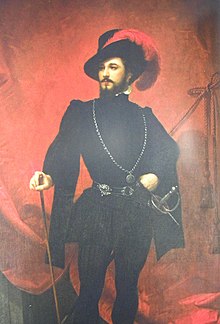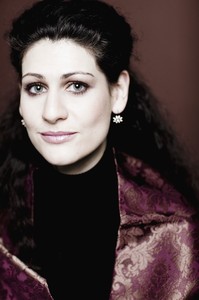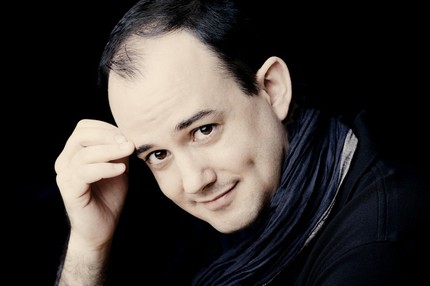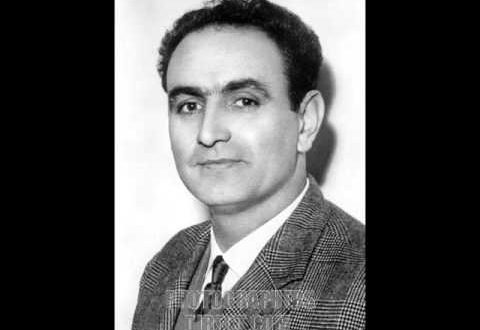
Giovanni Mario |
Giovanni Mario
One of the best singers of the XNUMXth century, Mario had a clear and full-sounding voice with a velvety timbre, impeccable musicality, and excellent stage skills. He was an outstanding lyric opera actor.
Giovanni Mario (real name Giovanni Matteo de Candia) was born on October 18, 1810 in Cagliari, Sardinia. Being a passionate patriot and equally passionately devoted to art, he abandoned family titles and land in his younger years, becoming a member of the national liberation movement. In the end, Giovanni was forced to flee his native Sardinia, pursued by the gendarmes.
In Paris, he was taken in by Giacomo Meyerbeer, who prepared him for admission to the Paris Conservatoire. Here he studied singing with L. Popshar and M. Bordogna. After graduating from the conservatory, the young count under the pseudonym Mario began performing on stage.
On the advice of Meyerbeer, in 1838 he performed the main role in the opera Robert the Devil on the stage of the Grand Opera. Since 1839, Mario has been singing with great success on the stage of the Italian Theater, becoming the first performer of the main roles in Donizetti’s operas: Charles (“Linda di Chamouni”, 1842), Ernesto (“Don Pasquale”, 1843).
In the early 40s, Mario performed in England, where he sang at the Covent Garden Theatre. Here, the fates of the singer Giulia Grisi and Mario, who passionately loved each other, united. The artists in love remained inseparable not only in life, but also on stage.
Quickly becoming famous, Mario traveled all over Europe, and gave a large part of his huge fees to Italian patriots.
“Mario was an artist of sophisticated culture,” writes A.A. Gozenpud – a man who is vitally connected with the progressive ideas of the era, and above all a fiery patriot, like-minded Mazzini. It’s not just that Mario generously helped the fighters for the independence of Italy. An artist-citizen, he vividly embodied the liberation theme in his work, although the possibilities for this were limited both by the repertoire and, above all, by the nature of the voice: the lyric tenor usually acts as a lover in opera. Heroics is not his sphere. Heine, a witness to the first performances of Mario and Grisi, noted only the lyrical element in their performance. His review was written in 1842 and characterized one side of the singers’ work.
Of course, the lyrics remained close to Grisi and Mario later, but it did not cover the entire scope of their performing arts. Roubini did not perform in the operas of Meyerbeer and the young Verdi, his aesthetic tastes were determined by the Rossini-Bellini-Donizetti triad. Mario is a representative of another era, although he was influenced by Rubini.
An outstanding interpreter of the roles of Edgar (“Lucia di Lammermoor”), Count Almaviva (“The Barber of Seville”), Arthur (“Puritanes”), Nemorino (“Love Potion”), Ernesto (“Don Pasquale”) and many others, he with the same skill he performed Robert, Raoul and John in the operas of Meyerbeer, the Duke in Rigoletto, Manrico in Il trovatore, Alfred in La Traviata.
Dargomyzhsky, who heard Mario in the first years of his performances on stage, in 1844 said the following: “… Mario, a tenor at his best, with a pleasant, fresh voice, but not strong, is so good that he reminded me a lot of Rubini, to whom he, however, , clearly looking to imitate. He is not a finished artist yet, but I believe he must rise very high.”
In the same year, the Russian composer and critic A.N. Serov wrote: “The Italians had as many brilliant fiascos this winter as in the Bolshoi Opera. In the same way, the public complained a lot about the singers, with the only difference being that Italian vocal virtuosos sometimes do not want to sing, while French ones cannot sing. A couple of dear Italian nightingales, Signor Mario and Signora Grisi, however, were always at their post in the Vantadour hall and carried us with their trills to the most blooming spring, while cold, snow and wind raged in Paris, piano concerts raged, debates in the chambers deputies and Poland. Yes, they are happy, bewitching nightingales; the Italian opera is an ever-singing grove where I escape when the winter melancholy makes me crazy, when the frosts of life become unbearable for me. There, in a pleasant corner of a half-closed box, you will warm yourself perfectly again; melodic charms will turn hard reality into poetry, longing will be lost in flowery arabesques, and the heart will smile again. What a pleasure it is when Mario sings, and in Grisi’s eyes the sounds of a nightingale in love are reflected like a visible echo. What a joy when Grisi sings, and Mario’s tender look and happy smile open melodiously in her voice! Adorable couple! A Persian poet who called a nightingale a rose between birds, and a rose a nightingale between flowers, here would be completely confused and confused in comparisons, because both, he and she, Mario and Grisi, shine not only with singing, but also with beauty.
In 1849-1853, Mario and his wife Giulia Grisi performed on the stage of the Italian Opera in St. Petersburg. The captivating timbre, sincerity and charm of the sound, according to contemporaries, captivated the audience. Impressed by Mario’s performance of the part of Arthur in The Puritans, V. Botkin wrote: “Mario’s voice is such that the most gentle cello sounds seem dry, rough when they accompany his singing: some kind of electric warmth flows in it, which instantly penetrates you , pleasantly flows through the nerves and brings all feelings into deep emotion; this is not sadness, not mental anxiety, not passionate excitement, but precisely emotion.
Mario’s talent allowed him to convey other feelings with the same depth and strength – not only tenderness and languor, but also anger, indignation, despair. In the scene of the curse in Lucia, the artist, along with the hero, mourns, doubts and suffers. Serov wrote of the last scene: “This is dramatic truth brought to its climax.” With the utmost sincerity, Mario also conducts the scene of Manrico’s meeting with Leonora in Il trovatore, moving from “naive, childish joy, forgetting everything in the world”, to “jealous suspicions, to bitter reproaches, to the tone of complete despair of an abandoned lover …” – “Here true poetry, true drama,” wrote the admiring Serov.
“He was an unsurpassed performer of the part of Arnold in William Tell,” notes Gozenpud. – In St. Petersburg, Tamberlik usually sang it, but in concerts, where the trio from this opera, omitted in performances, often sounded, Mario participated in it. “In his performance, the frenzied sobs of Arnold and his thunderous “Alarmi!” filled, shook and inspired the entire huge hall.” With powerful drama, he performed the part of Raoul in The Huguenots and John in The Prophet (The Siege of Leiden), where P. Viardot was his partner.
Possessing rare stage charm, beauty, plastique, the ability to wear a suit, Mario in each of the roles he played completely reincarnated into a new image. Serov wrote about the Castilian pride of Mario-Ferdinand in The Favourite, about his deeply melancholic passion in the role of Lucia’s unfortunate lover, about the nobility and courage of his Raul. Defending nobility and purity, Mario condemned meanness, cynicism and voluptuousness. It seemed that nothing had changed in the hero’s stage appearance, his voice sounded just as captivating, but imperceptibly for the listener-spectator, the artist revealed the cruelty and heartfelt emptiness of the character. Such was his Duke in Rigoletto.
Here the singer created the image of an immoral person, a cynic, for whom there is only one goal – pleasure. His Duke asserts his right to stand above all laws. Mario – The Duke is terrible with the bottomless emptiness of the soul.
A. Stakhovich wrote: “All the famous tenors that I heard after Mario in this opera, from Tamberlik inclusive to Mazini … sang … a romance (of the Duke) with roulades, nightingale trills and with various tricks that delighted the audience … Tamberlik poured in this aria, all the revelry and contentment of a soldier in anticipation of an easy victory. This is not how Mario sang this song, played even by hurdy-gurdies. In his singing, one could hear the recognition of the king, spoiled by the love of all the proud beauties of his court and satiated with success … This song sounded amazingly in the lips of Mario for the last time, when, like a tiger, tormenting its victim, the jester roared over the corpse … This moment in the opera is above all crackling Triboulet’s monologues in Hugo’s drama. But this terrible moment, which gives so much scope to the talent of a gifted artist in the role of Rigoletto, was full of horror for the public as well, with one backstage singing by Mario. Calmly, almost solemnly poured, his voice rang, gradually fading in the fresh dawn of the morning – the day was coming, and many, many more such days would follow, and with impunity, carefree, but with the same innocent amusements, the glorious life of the “hero of the king” would flow. Indeed, when Mario sang this song, the tragedy … of the situation chilled the blood of both Rigoletto and the public.
Defining the features of Mario’s creative individuality as a romantic singer, the critic of Otechestvennye Zapiski wrote that he “belongs to the school of Rubini and Ivanov, the main character of which is … tenderness, sincerity, cantabile. This tenderness has in him some original and extremely attractive imprint of nebula: in the timbre of Mario’s voice there is a lot of that romanticism that prevails in the sound of the Waldhorn – the quality of the voice is inestimable and very happy. Sharing the general character of the tenors of this school, he has an extremely high voice (he does not care about the upper si-bemol, and the falsetto reaches fa). One Rubini had an intangible transition from chest sounds to a fistula; of all the tenors heard after him, Mario came closer than others to this perfection: his falsetto is full, soft, gentle and easily lends itself to the shades of piano … He very deftly uses the Rubinian technique of a sharp transition from forte to piano … Mario’s fioritures and bravura passages are elegant, like all singers educated by the French public … All singing is imbued with dramatic color, let’s even say Mario is sometimes too carried away by it … His singing is imbued with genuine warmth … Mario’s game is beautiful.
Serov, who highly appreciated the art of Mario, noted “the talent of a musical actor of paramount power”, “grace, charm, ease”, high taste and stylistic flair. Serov wrote that Mario in “Huguenots” showed himself “the most magnificent artist, who at present has no equal”; especially emphasized its dramatic expressiveness. “Such a performance on the opera stage is something completely unprecedented.”
Mario paid great attention to the staging side, the historical accuracy of the costume. So, creating the image of the Duke, Mario brought the hero of the opera closer to the character of the drama of Victor Hugo. In appearance, make-up, costume, the artist reproduced the features of a genuine Francis I. According to Serov, it was a revived historical portrait.
However, not only Mario appreciated the historical accuracy of the costume. An interesting incident occurred during the production of Meyerbeer’s The Prophet in St. Petersburg in the 50s. More recently, a wave of revolutionary uprisings has swept across Europe. According to the plot of the opera, the death of an impostor who dared to lay the crown on himself was supposed to show that a similar fate awaits everyone who encroaches on legitimate power. The Russian Emperor Nicholas I himself followed the preparation of the performance with special attention, paying attention even to the details of the costume. The crown worn by John is surmounted by a cross. A. Rubinstein says that, having gone backstage, the tsar turned to the performer (Mario) with a request to remove the crown. Then Nikolai Pavlovich breaks off the cross from the crown and returns it to the dumbfounded singer. The cross could not overshadow the head of the rebel.
In 1855/68, the singer toured in Paris, London, Madrid, and in 1872/73 he visited the USA.
In 1870, Mario performed for the last time in St. Petersburg, and left the stage three years later.
Mario died on December 11, 1883 in Rome.





